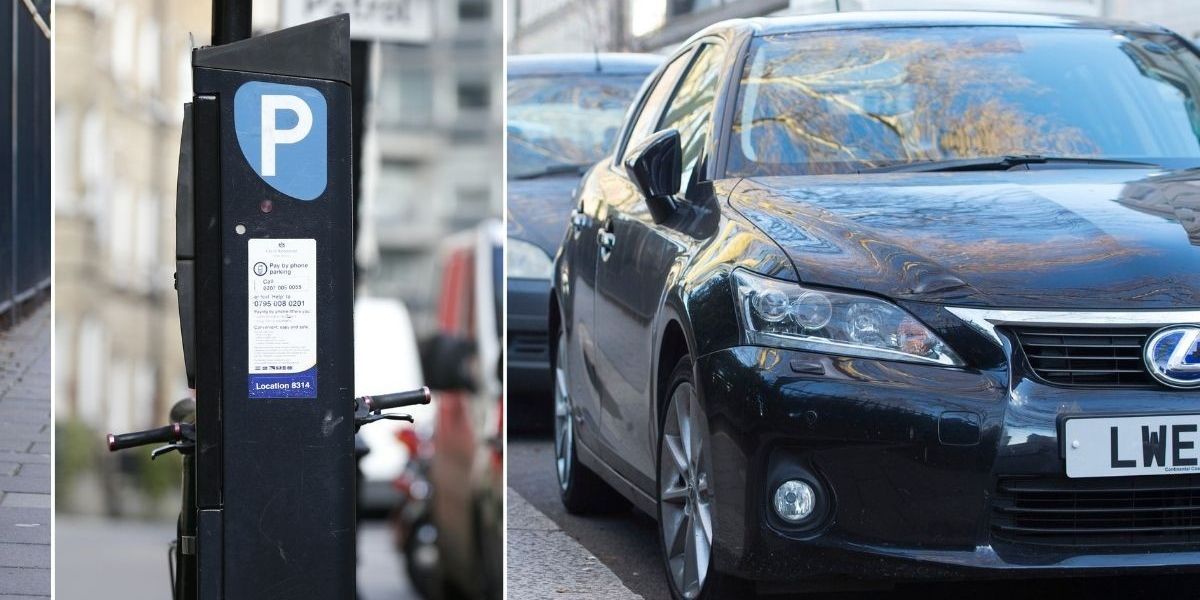Bristol City Council’s Proposed Parking Charges: A Shift Towards Sustainable Transport
Bristol City Council is on the verge of implementing a significant change in its parking strategy, one that could have far-reaching implications for motorists, particularly those driving larger vehicles. The council is considering new parking charges based on vehicle size, weight, and emissions, a move aimed at encouraging more sustainable transport options while addressing the environmental impact of larger, heavier, and more polluting cars.
The Proposal: A New Charging Structure
The proposed strategy is still in its infancy, with councillors set to vote on October 24 to establish a task group that will explore these options further. The council’s intention is to create a pricing structure that reflects the environmental impact of vehicles, thereby incentivizing drivers to consider smaller, less polluting alternatives. The project is expected to take a year to develop, followed by a public consultation phase before any final decisions are made.
A committee report highlights the project’s scope, stating, "The project will include outlining our strategy for managing on-street, off-street and resident parking scheme parking, including pricing strategy, demand management and variations on pricing categories, e.g. weight, emissions and size-based pricing." This comprehensive approach indicates a commitment to not only managing parking but also promoting a shift in how residents view vehicle ownership and usage.
Sustainable Urban Planning Initiatives
In addition to the proposed parking charges, Bristol City Council is exploring the reallocation of kerbside space for more sustainable uses. Plans include tree planting, cycle hangars, and seating areas, all aimed at fostering a more pedestrian-friendly environment. These initiatives are part of a broader strategy to encourage sustainable transport options throughout the city, aligning with national goals to reduce carbon emissions and improve air quality.
A Wider Trend Across the UK
Bristol’s proposed changes are not isolated; they reflect a growing trend across the UK. For instance, Bath and North East Somerset Council introduced a similar system last year, charging higher fees for diesel cars and high-emission petrol models in city centre car parks. In Bath, 66% of car park users experienced increased charges, with some facing hikes of up to 47%, from £1.70 to £2.50 per hour.
Lambeth Council in London has also taken steps towards sustainable urban planning by implementing a Kerbside Strategy, which aims to convert 25% of its kerbside space into areas designated for people rather than vehicles. This shift is indicative of a broader movement among councils to prioritize public space and reduce reliance on cars.
The Impact on Motorists
The proposed changes in Bristol could significantly impact owners of larger vehicles, such as the Range Rover, Mercedes-Benz S-Class, and even electric models like the Tesla Model S and X. As councils across the UK begin to implement size and emissions-based parking charges, drivers may find themselves facing higher costs for parking based on their vehicle’s environmental impact.
In Bath, for example, drivers of petrol cars emitting between 131 and 150g/km of CO2 now pay £1.80 for one hour, up from £1.70, while diesel cars in the same emissions bracket face a higher charge of £2.30. This system requires drivers to enter their registration number at pay-and-display machines, which automatically calculate the charge based on emissions.
The Growing Size of Vehicles
Interestingly, the trend towards larger vehicles has prompted some councils to impose size restrictions on their parking facilities. Five local councils, including Wokingham and West Devon, have set length limits of five metres for vehicles using their car parks. This move comes in response to the fact that many mainstream car models have increased in size over the years. For instance, the Peugeot 208 has grown by 580mm, and the Toyota Yaris by 445mm since 2018.
Despite the growing size of vehicles, a previous Freedom of Information request revealed that over 90% of councils have no plans to enlarge parking bays, which could lead to further challenges for drivers of larger cars.
Conclusion: A Step Towards Sustainability
As Bristol City Council prepares to vote on this new parking strategy, the implications for motorists and the environment are significant. By introducing charges based on vehicle size, weight, and emissions, the council aims to encourage a shift towards more sustainable transport options. This initiative, coupled with plans for reallocated kerbside space, reflects a growing recognition of the need to balance urban mobility with environmental responsibility.
As the council moves forward with its plans, public consultation will be crucial in shaping the final strategy. The outcome could set a precedent for other cities across the UK, marking a pivotal moment in the ongoing conversation about sustainable urban transport and the role of local authorities in promoting greener practices.
